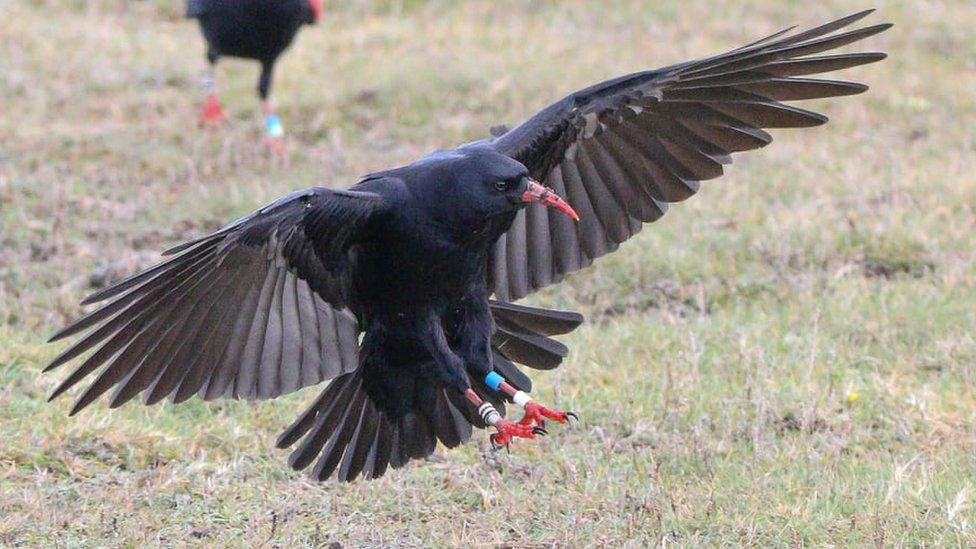Wild choughs to return to Kent after two centuries
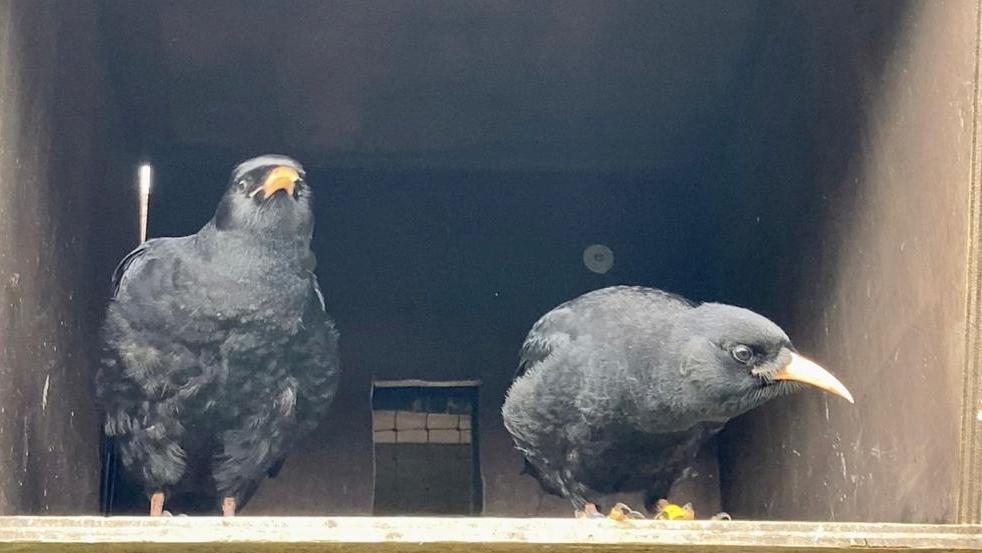
The chough chicks have been hand-reared for release into the Kent countryside
At a glance
Hand-reared choughs are to be reintroduced to a site near Dover
The birds went extinct in Kent 200 years ago
Ten birds will be released into a restored habitat
- Published
A bird species that has been extinct in Kent for 200 years is being reintroduced to the wild after a captive breeding programme.
Ten choughs will be released near Dover in the coming weeks.
The birds are members of the corvid family which includes rooks, ravens, crows and magpies.
The chicks have been raised at Wildwood Trust near Canterbury, in partnership with the Kent Wildlife Trust.
Paul Hadaway, director of conservation and engagement at the Kent Wildlife Trust, said the reintroduction has been made possible by years of work restoring their habitat, through sympathetic grazing to encourage the return of other plants and insects.
"By working with farmers and landowners we're creating the conditions for these birds to come back," he said, "and by returning them we're using their presence to drive the next decades of that process."
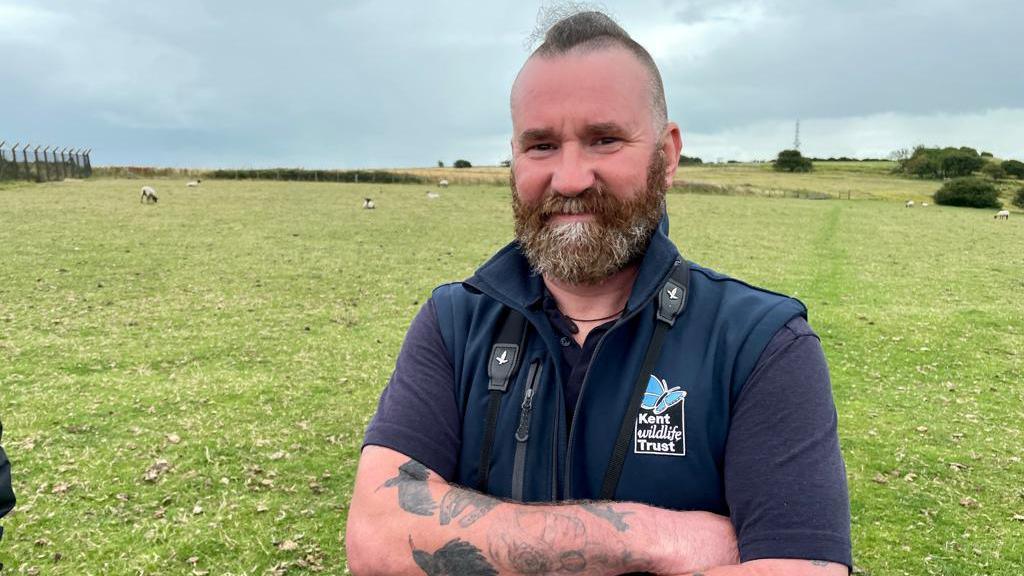
Paul Hadaway has overseen the project to reintroduce choughs to Kent
Adult choughs are distinguished from other corvids by their red legs and beaks.
According to legend that colouring came from walking through the blood of the martyred Archbishop of Canterbury Thomas Becket in 1170, and choughs appear on the city's coat of arms.
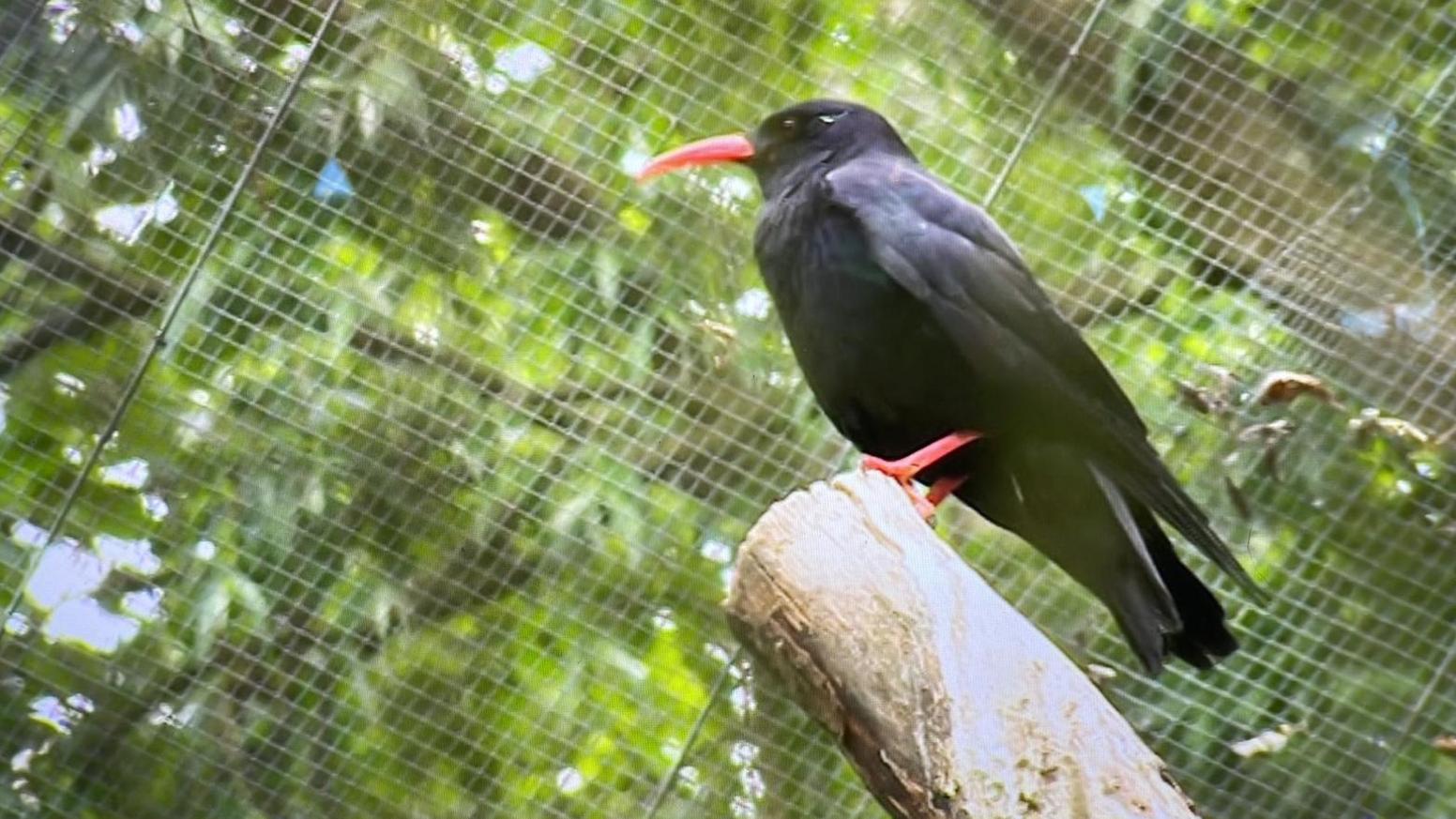
The adult chough's red legs distinguish it from other members of the corvid family
Liz Corry from the Wildwood Trust helped rear the birds.
"There's lots of hand-rearing involved, which means lots of sleepless nights," she said, "but it's just so rewarding to know you're returning a species to Kent."
She and her colleagues went to great lengths to ensure the hand-reared chicks remain as wild as possible.
She said: "We're using a black glove and tweezers to mimic the parents' head, we play audio calls back between feeds so they're listening to chough sounds and we're trying to discourage them from landing on us."
Follow BBC South East on Facebook, external, on Twitter, external, and on Instagram, external. Send your story ideas to southeasttoday@bbc.co.uk, external.
Related topics
You might be interested in
- Published11 August 2022
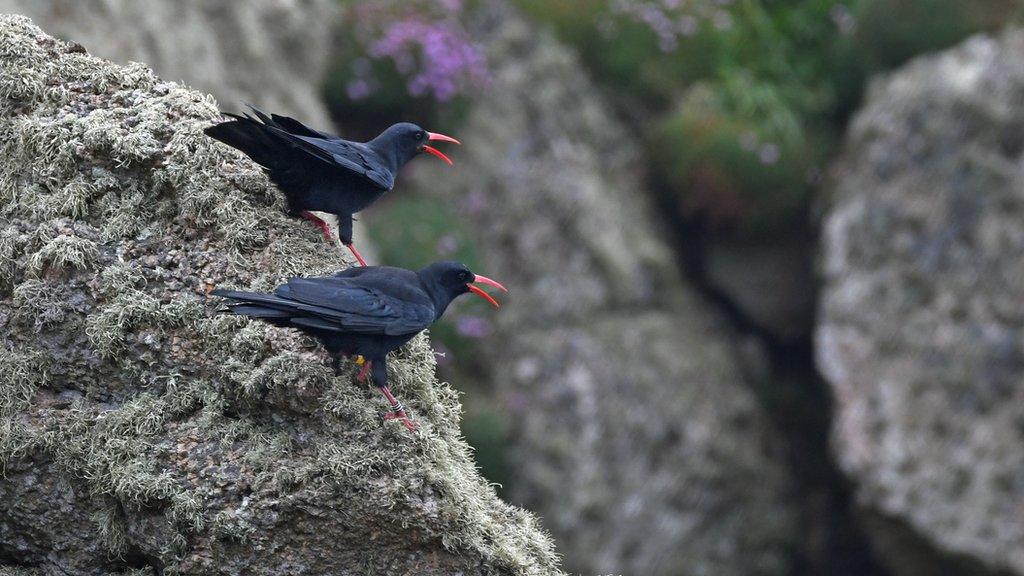
- Published3 August 2021
